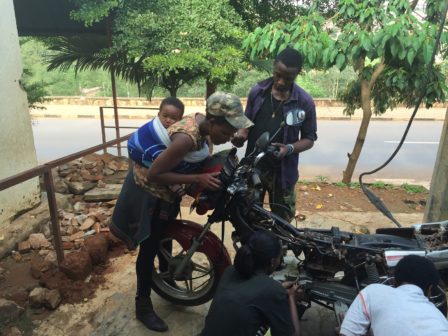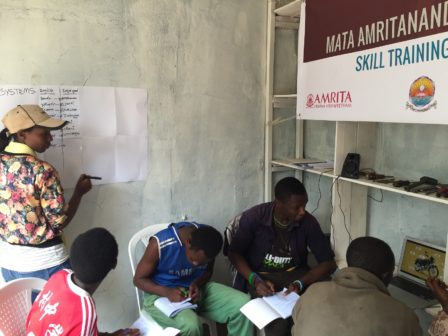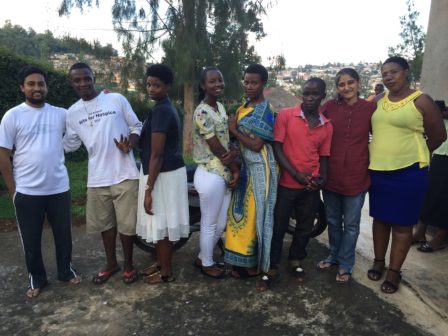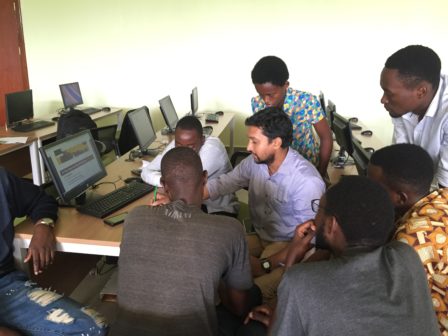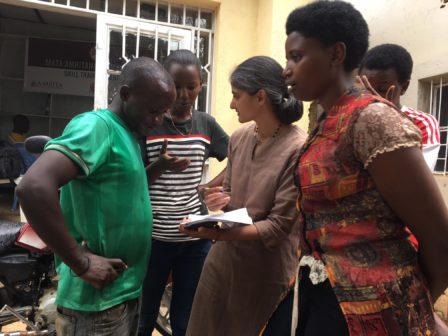Amrita Vishwa Vidyapeetham’s AMMACHI Labs has been helping underserved communities in India through computerized skill-development training since 2009. Last month, AMMACHI Labs’ Ajay Balakrishnan, Content Development Manager and PhD Research Associate Srividya Sheshadri, traveled to Rwanda to pilot a computerized Motorcycle Service Repair Course. The trial represented a lot of firsts for Amrita. It was the first time Amrita has taken its computerized humanitarian training programme to Africa. It was also the first parallel deployment in a formal and non-formal setting, and the first time Motorcycle Service Repair was offered as a short term vocational training course in Rwanda using technology.
Amrita’s Motorcycle Service Repair Course Rwanda brings formal and informal learners together
The course brought urban students and the youth from slums into a unified skill training program
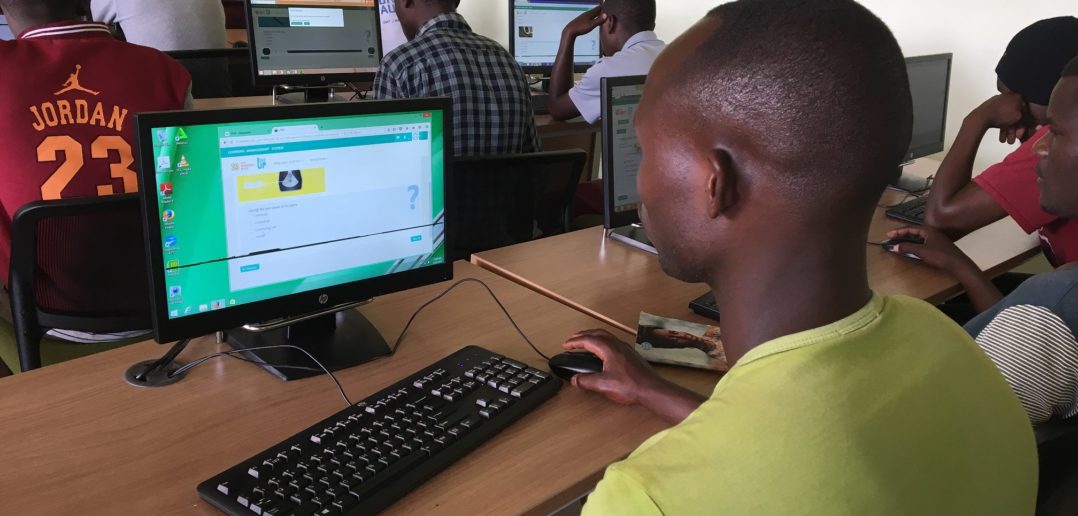
25 people were trained over a two week period in two separate locations: 20 students from IPRC, the Integrated Polytechnical Regional College, a premier vocational training institute in Kigali and 5 students from the Circle de Sportiff slum, located in the city’s outskirts. “The objective of the pilot is to improve the skills of the diverse groups of participants by expanding their access to quality skill training using technology,” said Ajay Balakrishnan.
Partnership with STEP Innovations Africa
The pilot in the vocational training institute took place in partnership with STEP Innovations Africa. Twenty IPRC students who were already enrolled in a three-year diploma course in automotive engineering, were selected for Amrita’s training. The students were motivated to participate because the Amrita course focuses on an additional set of profitable skills—motorcycle repair—not covered in their primary course.
“Digital learning simplifies the amount of teaching. When students are watching the video, they cannot be distracted and are engaged. It also helps the trainer to use less energy, clarify points that are unclear and help students understand what they learned from the videos. This is a good manner of teaching and I think our government should implement this,” said Freferick, an IPRC Instructor.
Informal Setting
The pilot in the slum emerged spontaneously and in response to requests from the community where Amrita team members resided, to learn something that could give them a chance for skilled employment. While stationed in Circle de Sportif, a slum area in Rugunga, on the outskirts of Kigali, the team members explored the informal computerized motorcycle-repair training of unemployed youth in the area as well.
Given Rwanda’s high rate of poverty and unemployment, local leaders and community members said helping the youth living in the slum gain employable skills was crucial. Due to various social and economic challenges, the majority of youth are unable to pursue higher education or access formal skill-development opportunities.
Following a community-awareness program and interview selection process to determine the youth most motivated to learn and in need of skilled employment, five unemployed youth were selected — three girls and two boys, between 18 and 23.
“The students were so eager and motivated to learn,” said Ajay Balakrishnan. “It was inspiring to see their sincere desire to participate in this program.”
Bringing the Formal adn Informal Students Together
The team set up a similar model to their training programs in India. “We realized that our years of experience in setting up training centers in remote Indian villages is what made it possible for us to set up training in the slum quickly and effortlessly,” said Srividya Sheshadri. “Given the limited resources and the first time this course was being deployed in a location outside India, we intentionally maintained a small batch size to ensure we could carefully monitor and evaluate the effectiveness of the training methodology.” The team plans to publish their findings.
Towards the end of the two-week pilot course, the IPRC students and Rugunga students had the opportunity to meet and share their learning experiences. They also discussed their plans for the future, practiced common repairs together and received supportive guidance for post-course plans through the IPRC entrepreneurship cell.
The response to the experience was extremely positive. The village chief, said, “As the small community of Circle de Sportiff, we are very grateful to Amrita for what they taught us. We appreciate the efforts they put in our community to lead us to somewhere.”
Thanking the Amrita staff for the course, Deborah S., one of the students from the area said “I’m thankful for where you have brought us to. As you saw during these two weeks, we are committed and going to pursue this training and go even further, so that we can achieve something and develop our own country.”
The students of the Circle de Sportiff slum and of IPRC plan to continue their learning. They are also starting the process of forming a cooperative that will function as a motorcycle garage and school to train others interested in motorcycle repair. This would become the first garage in Rwanda run by women mechanics.
“This pilot class shows the potential and need for ICT-based skill development in developing countries outside of India,” said Prof. Bhavani Rao, Director of Amrita’s AMMACHI Labs. “Such programmes are particularly apt when it come to reaching communities that cannot access formal streams of education and formal employment. Continuing to support the group in forming their cooperative to maintain and leverage their skills to earn an income, is the next critical step.”




